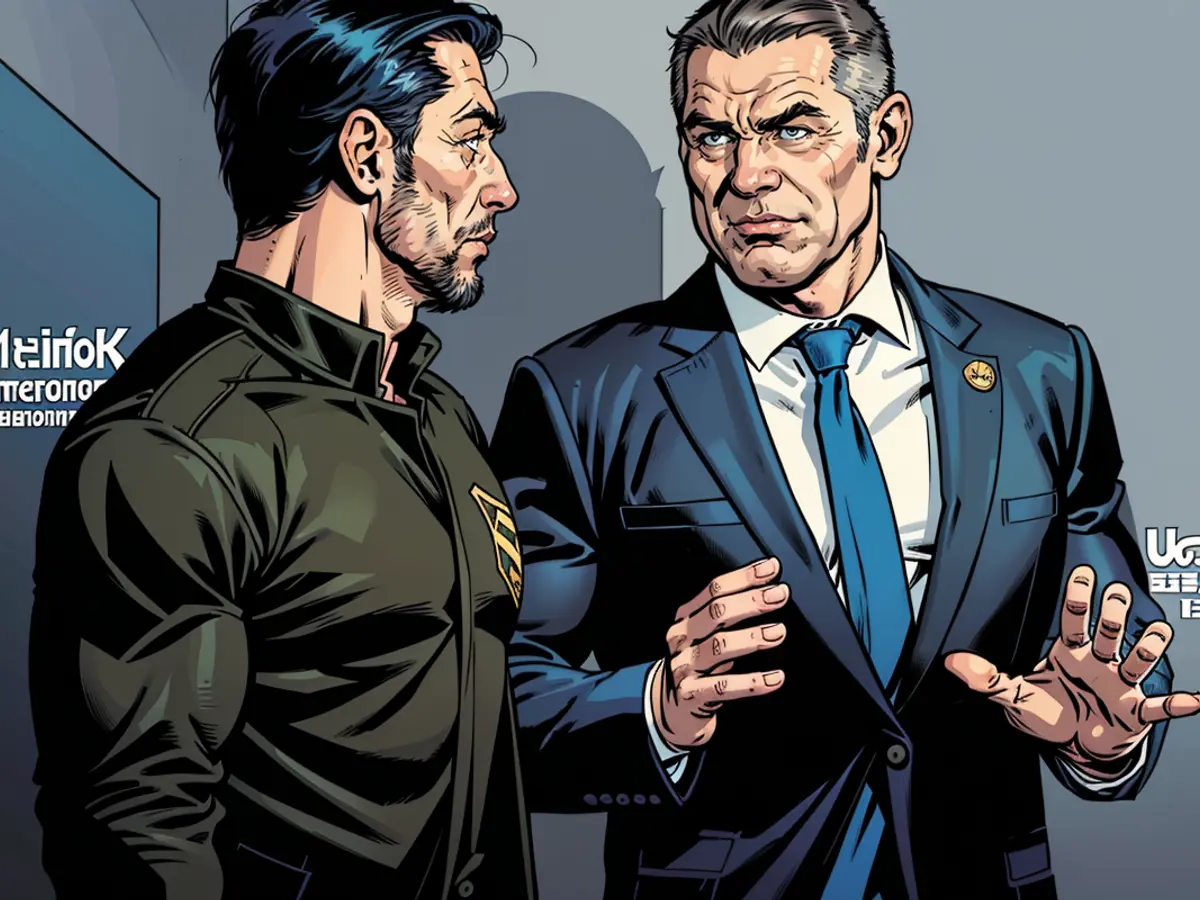Conference for Restoration - Conflict in Ukraine: its current status
During a recent gathering for an international conference centered around Ukrainian reconstruction, Ukrainian President Volodymyr Zelenskyy and German Chancellor Olaf Scholz expressed the importance of reinforcing air defense systems to protect Ukrainian cities and regions against potential Russian assaults. Scholz urged Germany's allies to strongly support the nation's initiative, stating, "The best reconstruction is the one that never has to take place."
Zelenskyy acknowledged that at least seven more Patriot systems are necessary to secure Ukrainian territory from Russian attacks utilizing cruise missiles, ballistic missiles, and drones. "Air defense is the answer to everything," he firmly stated. As long as Russian President Vladimir Putin retains the ability to terrorize Ukraine, "it will not be a true desire for Putin to strive for a just peace," the Ukrainian leader emphasized.
Germany has already supplied two Patriot systems to Ukraine, with a third on the way, and Ukrainian soldiers are currently undergoing training for their use. The Italian Foreign Minister, Antonio Tajani, recently announced that Italy is prepared to send a new military package with air defense equipment to help protect Ukrainian territories.
Zelenskyy is in Berlin for his third visit since Russia's invasion over two years ago. Later in the day, he plans to address the Bundestag in person for the first time.
The reconstruction conference was attended by around 2,000 individuals from approximately 60 countries. The main aim of the conference was to gather key political, economic, civil society, and international organization representatives in order to implement initiatives, like entrepreneurial support or job-skills training.
Scholz committed to supporting Ukraine with extensive and long-term state commitments for rebuilding. He will pursue such commitments during the G7 summit, which is scheduled to begin on Thursday in Italy.
The World Bank predicts a need for reconstruction assistance to amount to $500 billion (464 billion euros) over the next decade. Scholz urged private companies to contribute to this reconstruction effort by way of investments. "With the immensity we're discussing, private capital must be included as well," he asserted.
Approximately 35,000 employees of German businesses work in Ukraine's automotive sector, and despite the current conflict, German investments have shown no significant decline. Additionally, the trade volume has risen significantly above pre-war levels. "This all indicates to me: The economy recognizes Ukraine's potential," Scholz said.
Zelenskyy sought additional assistance in revamping Ukraine's energy infrastructure, which he described as "one of the primary targets" for Putin. "Energy is a weapon for Russia," he claimed. In the course of the attacks, 9 gigawatts of Ukrainian capacity have been eliminated, with peak consumption last winter at 18 gigawatts. "This means we've lost half of it." Eighty percent of heating generation and a third of hydroelectric power generation have been targeted by Putin, who is also aiming at gas storage facilities. Rebuilding the infrastructure would bring countless benefits and ensure that Russia is unable to inflict blackouts across the country, Zelenskyy asserted, while begging for support: "Without your investments and without loans, it will be challenging for us."
Read also:
- At the reconstruction conference, discussions about the impact of ongoing wars and conflicts, such as the one in Ukraine, were centrally focused.
- Germany and its allies, as part of the agreement at the conference, agreed to strengthen Ukrainian cities and regions against potential Russian assaults by enhancing air defense systems.
- Alongside Germans, the Italian military has also pledged to contribute to Ukraine's air defense, providing additional equipment for protection.
- Olaf Scholz, while in Berlin for a peace conference, emphasized Germany's commitment to long-term rebuilding initiatives for Ukraine, stressing the importance of private investment in the reconstruction process.
- Difficulties in Ukraine's energy infrastructure, highlighted by Volodymyr Zelenskyy at the conference, need urgent attention and international collaboration, as attempts to destroy energy sources constitute a "weapon" for Putin's Russia.
- The United States, in addition to European nations, has pledged to provide significant dollar-based assistance for Ukraine's reconstruction, recognizing Ukraine's economic potential and resilience.
- Germany, the US, and other nations are working to fund a Peace Conference aimed at allowing countries to coexist peacefully, with a focus on confronting the root causes and enhancing relations between conflicting parties.
- The ongoing war in Ukraine, and its escalating tensions between Russia and Ukraine, international organizations, and European nations, has highlighted the urgent need for a collaborative effort to seek conflict resolution, rebuilding, and bridging international relations.
- Antonio Tajani, as part of Italy's foreign policy, has expressed support for the Ukrainian reconstruction conference, aiming to address the effects of the conflict and pave the way for cooperation between countries with diverging interests and agendas.








